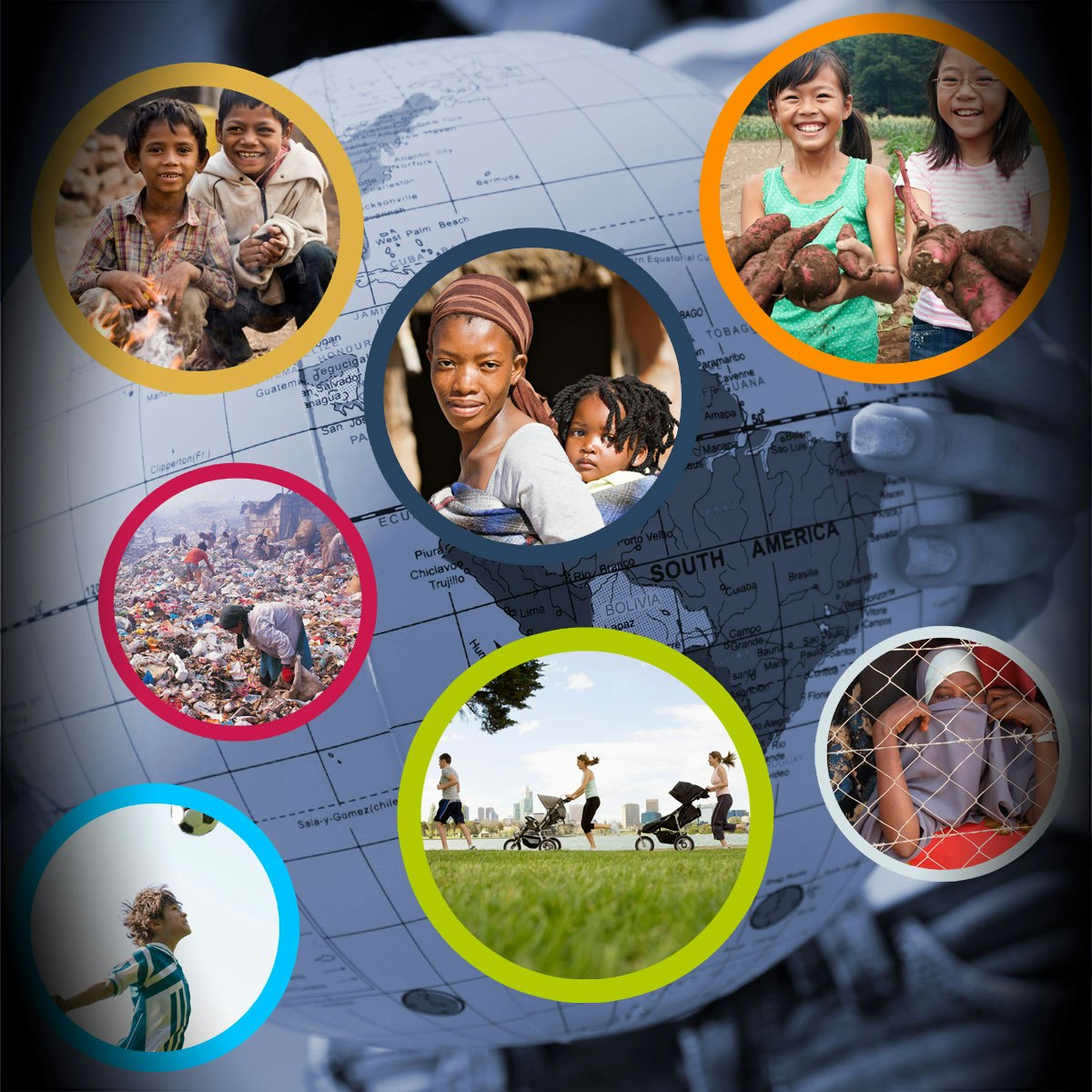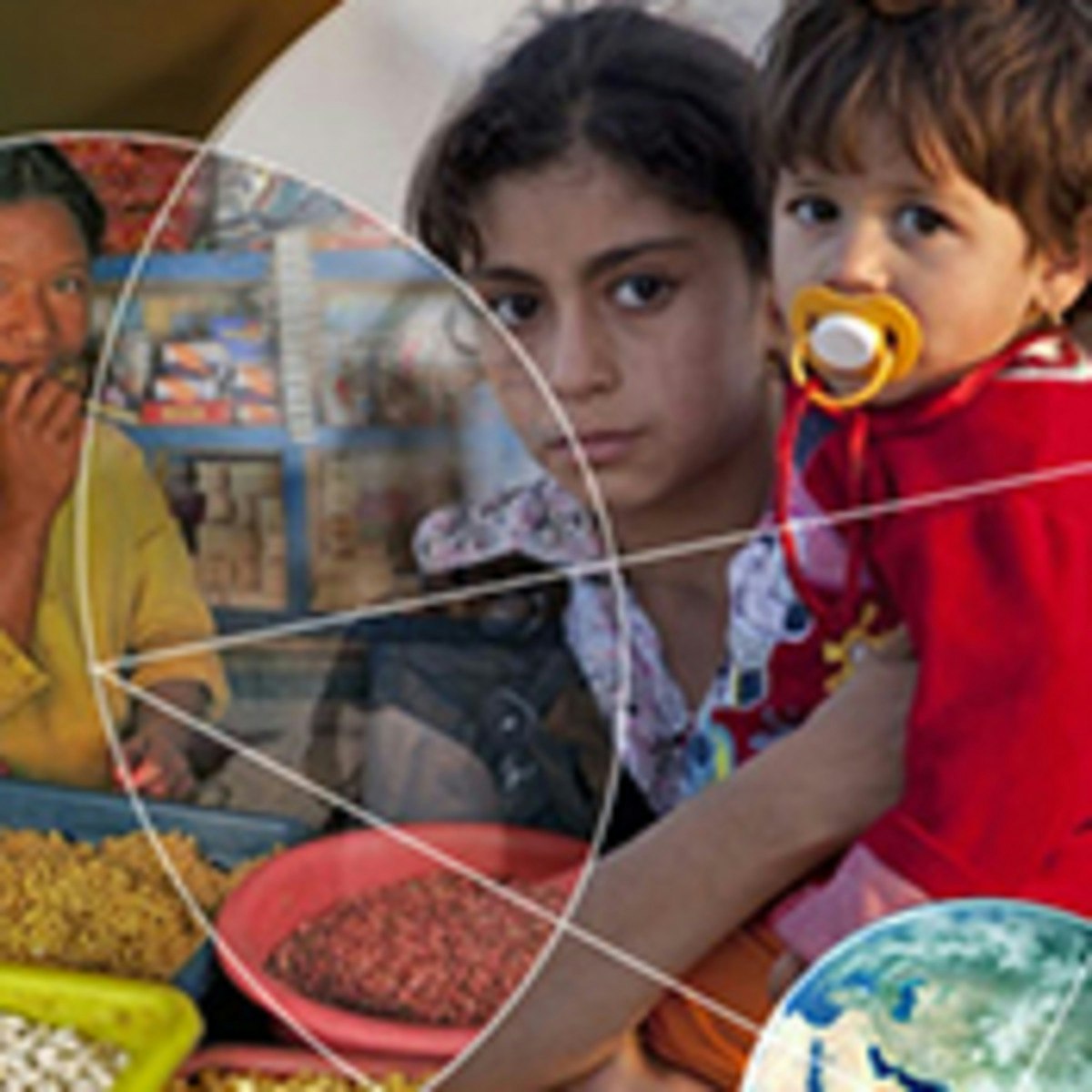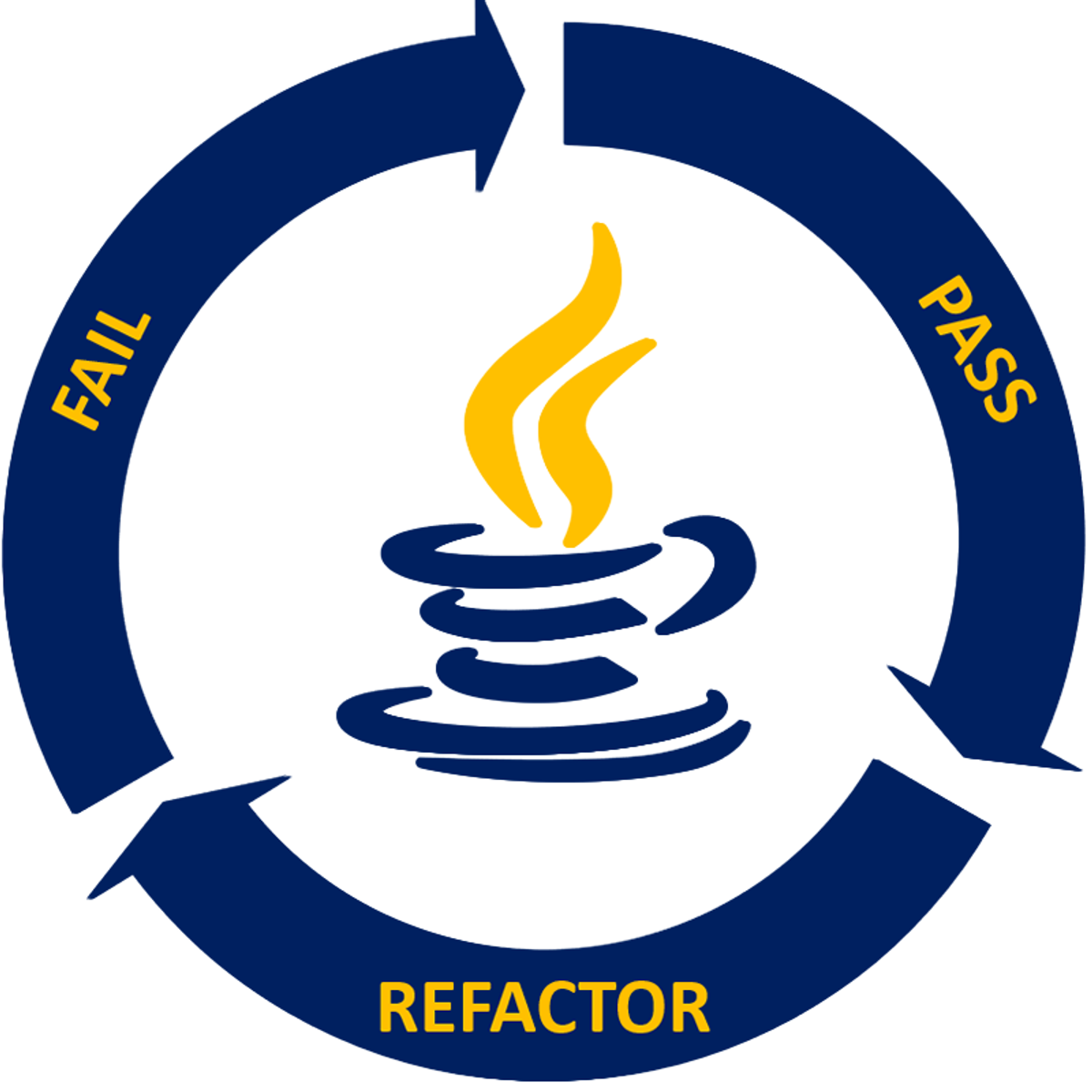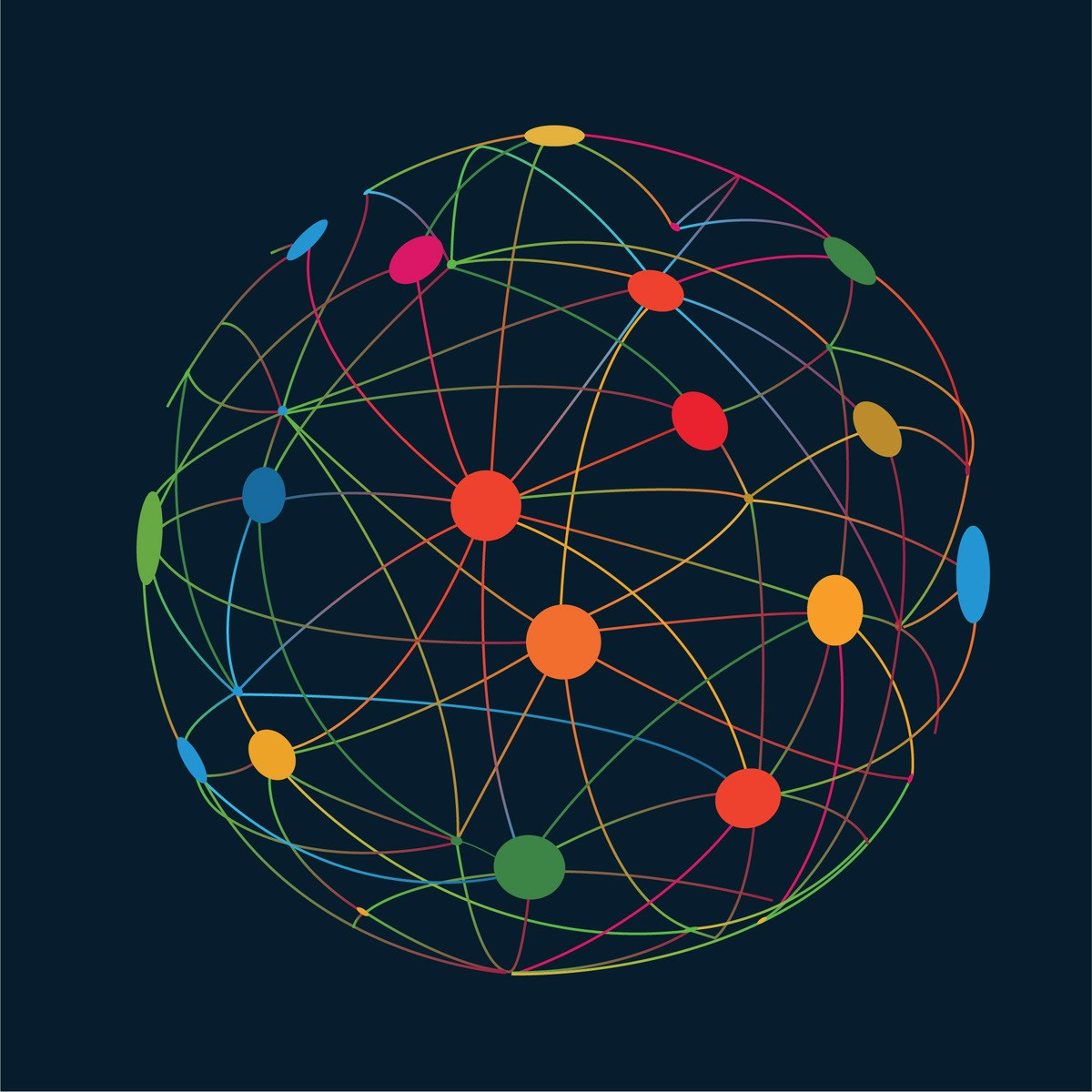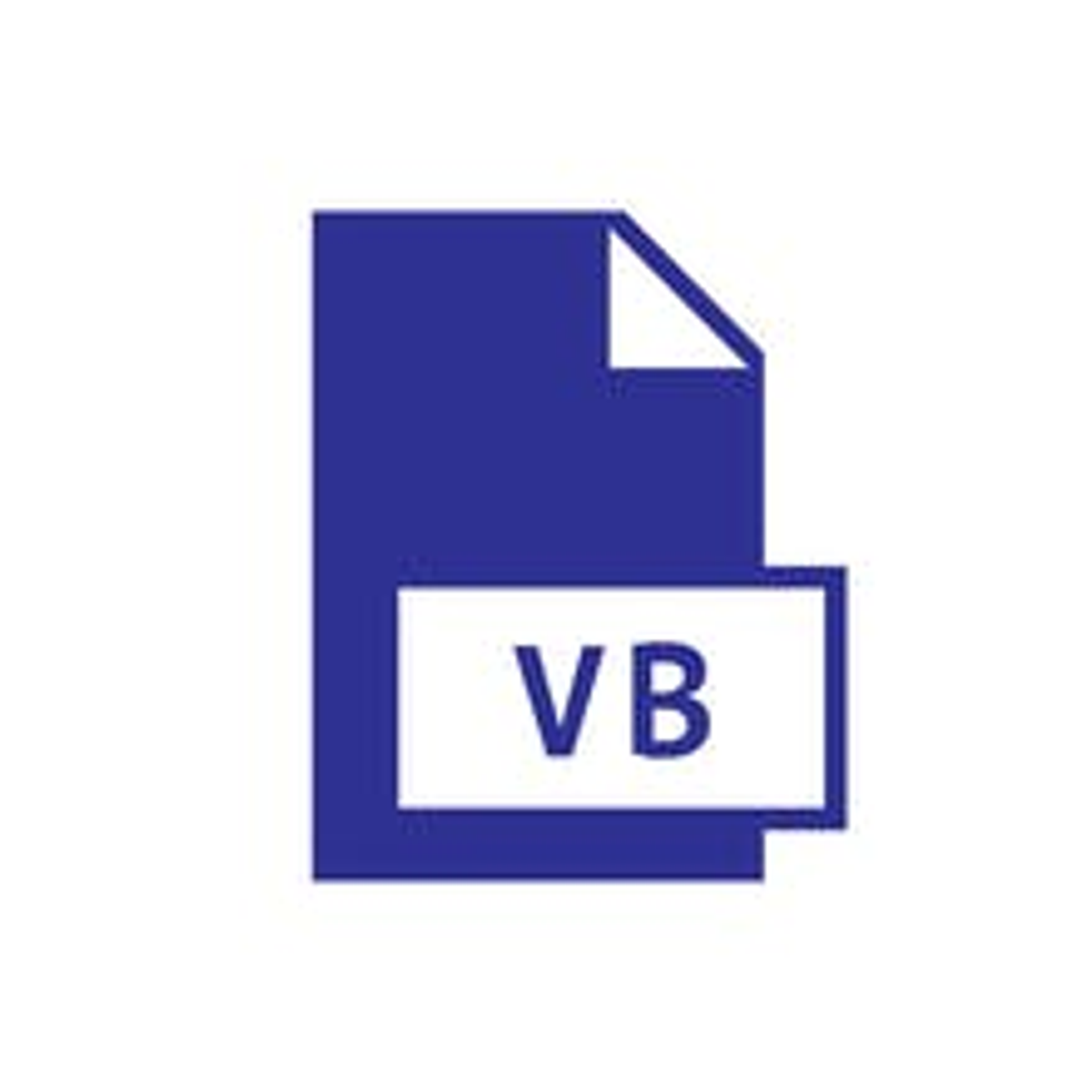Development
vigating the World of Development: A Comprehensive Guide
Development, in its broadest sense, refers to the process of growth, progress, and positive change. In the context of societies and nations, it encompasses a multifaceted endeavor aimed at improving the quality of life for people. This involves not just economic advancement, but also social inclusion, environmental sustainability, and the strengthening of institutions. It's a field that grapples with some of the world's most pressing challenges, from poverty and inequality to climate change and conflict. The study and practice of development, often termed International Development Studies, is inherently interdisciplinary, drawing on insights from economics, sociology, political science, environmental science, anthropology, and many other fields.
Working in development can be incredibly engaging and exciting. It offers the chance to contribute to meaningful change, whether by designing programs that expand access to education or healthcare, advocating for policies that promote human rights, or working directly with communities to build resilience and create new opportunities. The field is dynamic and constantly evolving, requiring practitioners to be adaptable, innovative, and deeply attuned to the complexities of the local contexts in which they work. For those driven by a desire to understand and address global challenges, a career in development can be both intellectually stimulating and profoundly rewarding.
Key Concepts in Development
To understand the field of development, it's helpful to become familiar with some of its core concepts and frameworks. These tools and ideas help practitioners and researchers analyze challenges, measure progress, and design effective interventions.
Measuring Progress: The Human Development Index (HDI) and Beyond
For many years, economic growth, typically measured by Gross Domestic Product (GDP) per capita, was the primary indicator of a country's development. However, this narrow focus often masked significant disparities in well-being and ignored crucial aspects of human life. To provide a more holistic measure, the United Nations Development Programme (UNDP) introduced the Human Development Index (HDI) in 1990. The HDI was created to emphasize that people and their capabilities should be the ultimate criteria for assessing the development of a country, not economic growth alone.
The HDI is a composite statistic that combines three key dimensions: a long and healthy life (measured by life expectancy at birth), being knowledgeable (measured by mean years of schooling for adults and expected years of schooling for children), and having a decent standard of living (measured by Gross National Income, or GNI, per capita). Each country receives an HDI score between 0 and 1, with higher scores indicating greater levels of human development. The HDI can be used to question national policy choices, highlighting how countries with similar income levels can have vastly different human development outcomes, thereby stimulating debate about government priorities.
While the HDI is a valuable tool, it simplifies and captures only part of what human development entails. It does not, for instance, reflect inequalities, poverty levels, human security, or empowerment. Recognizing these limitations, other complementary indices have been developed. The Inequality-adjusted Human Development Index (IHDI) adjusts the HDI for inequality within a country across the three dimensions. The Gender Development Index (GDI) measures gender gaps in human development achievements by comparing female and male HDI values. These and other metrics provide a more nuanced understanding of development progress and challenges.
Guiding Global Action: The Sustainable Development Goals (SDGs)
In 2015, all 193 United Nations member states adopted the 2030 Agenda for Sustainable Development, which includes 17 Sustainable Development Goals (SDGs). These goals represent a universal call to action to end poverty, protect the planet, and ensure that all people enjoy peace and prosperity by 2030. The SDGs cover a wide range of interconnected issues, including poverty, hunger, health, education, gender equality, clean water and sanitation, affordable and clean energy, decent work and economic growth, industry, innovation and infrastructure, reduced inequalities, sustainable cities and communities, responsible consumption and production, climate action, life below water, life on land, peace, justice and strong institutions, and partnerships for the goals.
The Sustainable Development Goals Report, published annually by the UN, tracks global and regional progress towards achieving these targets. Recent reports indicate that progress has been slow, and in some cases, reversed, due to factors like the COVID-19 pandemic, escalating conflicts, geopolitical tensions, and the worsening climate crisis. For example, the 2024 report notes that only 17% of SDG targets with available data are on track to be met by 2030, while over a third have stalled or regressed. Addressing these challenges requires a significant scaling up of investment and action globally.
These courses offer insights into critical development perspectives and the Sustainable Development Goals, providing a solid foundation for understanding contemporary development challenges.
For those interested in the financial aspects of development, this course provides a focused look at financial development and inclusion.
This book offers a comprehensive look at the goals set forth by the international community.
Urban vs. Rural Development Paradigms
Development strategies often differ significantly between urban and rural contexts, reflecting their distinct characteristics, challenges, and opportunities. Urban development typically focuses on issues such as housing, infrastructure (transportation, sanitation, energy), employment in industrial and service sectors, and managing population density. Challenges in urban areas can include slums, pollution, traffic congestion, and social inequalities. However, cities are also hubs of innovation, economic activity, and cultural exchange, offering significant potential for development.
Rural development, on the other hand, often prioritizes agricultural productivity, food security, access to basic services (health, education, water), natural resource management, and creating non-farm employment opportunities. Rural areas may face challenges like isolation, limited infrastructure, vulnerability to climate change impacts on agriculture, and out-migration of youth seeking better opportunities in cities. Effective rural development aims to improve livelihoods, enhance resilience, and ensure that rural communities are not left behind in the broader development process.
Recognizing the interconnectedness of urban and rural areas is crucial. Policies that promote balanced regional development, strengthen urban-rural linkages (e.g., through improved transportation and market access), and address the specific needs of both types of communities are essential for overall national development. The course below offers insights into shaping urban futures, a key aspect of modern development.
The Role of Public-Private Partnerships in Development
Public-Private Partnerships (PPPs) have become an increasingly common approach in development, particularly for large-scale infrastructure projects and service delivery. A PPP involves a collaboration between a government agency and a private-sector company that can be used to finance, build, and operate projects such as public transportation networks, power plants, schools, or hospitals. The rationale behind PPPs is that by combining the expertise, resources, and innovation of the private sector with the public sector's mandate to serve the public interest, development outcomes can be achieved more efficiently and effectively.
Proponents argue that PPPs can help bridge funding gaps for essential infrastructure, introduce new technologies and management practices, and improve service quality. However, PPPs also present challenges and risks. These can include ensuring that projects genuinely serve the public interest rather than primarily private profit, managing complex contractual arrangements, ensuring transparency and accountability, and equitably sharing risks and rewards between public and private partners. Careful planning, robust regulatory frameworks, and strong governance are essential for successful PPPs that contribute positively to development goals.
Understanding how different sectors collaborate is key in development. While not specific to PPPs, courses on management and broader economic principles can provide useful context.
Historical Evolution of Development Theories
The way we understand and approach "development" has changed significantly over time. These shifts in thinking have been influenced by historical events, geopolitical contexts, and evolving critiques of earlier models. Understanding this history provides crucial context for current development debates and practices.
Post-WWII Reconstruction and Modernization Theory
In the aftermath of World War II, the focus of early development efforts was largely on the reconstruction of war-torn Europe and the emergence of newly independent nations in Asia and Africa. During this period, modernization theory became a dominant paradigm. This theory posited that all societies progress through similar stages of development, and that "traditional" or "underdeveloped" countries could achieve modernity by following the path taken by Western industrialized nations. Key tenets included industrialization, urbanization, the adoption of Western values and institutions, and significant capital investment, often supported by foreign aid from developed countries and international financial institutions like the World Bank.
Modernization theory emphasized economic growth as the primary driver of development and often overlooked issues of internal inequality, cultural context, and historical power imbalances. While some countries experienced periods of rapid economic growth under this model, it also faced criticism for its Eurocentric assumptions and its frequent failure to deliver widespread improvements in living standards for all segments of the population in developing nations.
To understand the historical context, it's useful to explore broader themes of global health and international relations, which were significantly shaped during this period.
Dependency Theory Critiques
Emerging in the 1960s and 1970s, largely from Latin American scholars, dependency theory offered a powerful critique of modernization theory. Dependency theorists argued that the underdevelopment of countries in the Global South was not an initial stage but rather a direct consequence of their historical and ongoing exploitative relationship with the wealthy, industrialized nations of the Global North. They contended that the global capitalist system was structured in a way that perpetuated the dependence of "peripheral" (developing) countries on "core" (developed) countries.
According to this perspective, resources and wealth flowed from the periphery to the core, enriching the latter at the expense of the former. Dependency theorists advocated for policies that would reduce this dependence, such as import substitution industrialization (developing domestic industries to replace imported goods), greater South-South cooperation, and, in some cases, a break from the global capitalist system. While dependency theory has been criticized for its own generalizations and for sometimes underestimating the agency of developing countries, its insights into global power structures and historical inequalities continue to inform critical development perspectives.
These books provide critical perspectives on poverty and the economic structures that can perpetuate it, aligning with some of the concerns raised by dependency theorists.
Neoliberal Shifts in the 1980s-90s
The 1980s and 1990s witnessed a significant shift towards neoliberal development policies. This was driven by several factors, including the debt crises faced by many developing countries, the rise of conservative governments in key Western nations (like the US and UK), and the perceived failures of state-led development models. Neoliberalism emphasized free markets, privatization of state-owned enterprises, deregulation, trade liberalization, and reduced government spending, particularly on social services. These policies were often promoted and, in many cases, mandated by international financial institutions like the International Monetary Fund (IMF) and the World Bank as conditions for loans, under what became known as "Structural Adjustment Programs" (SAPs).
Proponents argued that these reforms would stimulate economic efficiency, attract foreign investment, and lead to growth. However, neoliberal policies also faced widespread criticism for their social costs. Critics pointed to rising inequality, cuts in essential public services like health and education, increased vulnerability for the poor, and a "one-size-fits-all" approach that often ignored local contexts and needs. The impact of these policies remains a subject of intense debate in development studies.
Understanding economic theories is crucial for grasping the shifts that occurred during this period. This book on development economics can provide a foundational understanding.
21st-Century Focus on Participatory Development
In response to the critiques of top-down and purely market-driven approaches, the 21st century has seen a growing emphasis on participatory development. This approach stresses the importance of involving local communities and stakeholders in all stages of the development process, from identifying needs and designing interventions to implementation, monitoring, and evaluation. The core idea is that meaningful and sustainable change is more likely when the people most affected by development issues have a genuine voice and agency in shaping their own futures.
Participatory development aims to empower marginalized groups, ensure that interventions are culturally appropriate and locally relevant, and build local ownership and capacity. It involves creating platforms and processes that amplify the voices of those often excluded, such as women, youth, and indigenous communities. While participatory approaches can be more time-consuming and complex to implement, they are seen as essential for fostering equity, accountability, and long-term sustainability in development efforts. This approach often involves shifting power dynamics and recognizing the expertise of local populations.
These resources delve into the ideas of empowerment and people-centered approaches, which are central to participatory development.
This older text also provides historical context on early ideas around participatory development.
Career Pathways in Development
A career in development offers diverse opportunities to contribute to positive global change. The field is broad, encompassing roles in non-governmental organizations (NGOs), international organizations (like the UN), government agencies, research institutions, social enterprises, and private consulting firms. The path you take will depend on your skills, interests, and educational background. It's a competitive field, so gaining relevant experience through internships, volunteering, and fieldwork is often crucial.
For those considering a career pivot, the journey into development can be both exciting and challenging. Your existing skills, whether in project management, finance, communications, or another area, can often be transferable. However, understanding the specific context of international development, its unique challenges, and its ethical considerations is vital. It might require further education or specialized training. Be prepared for a journey of continuous learning and adaptation. The rewards, in terms of making a tangible difference, can be immense, but it's important to approach this path with realistic expectations and a commitment to ethical practice.
Entry-Level Roles
For individuals starting their careers in development, several entry-level positions can provide valuable experience and a foothold in the sector. Roles like Program Assistant, Project Officer, Research Assistant, Field Coordinator, or Communications Officer are common starting points. These positions often involve supporting senior staff in the planning, implementation, and monitoring of projects. Tasks might include conducting research, writing reports, organizing events, liaising with partners, managing budgets, and assisting with fieldwork.
Entry-level salaries can vary significantly based on the organization (NGO, international body, government), location (headquarters vs. field office, country of operation), and the specific responsibilities of the role. For example, UK-based administrative support roles with NGOs might start in the range of £18,000 to £25,000. In the US, entry-level positions at an agency like USAID might range from $45,000 to $60,000 per year. Gaining practical experience, often through internships or volunteer work, is highly valued and can significantly improve job prospects. Language skills and cross-cultural sensitivity are also key assets.
While not entry-level specific, these courses provide foundational knowledge relevant to various roles in development, including those related to project management and dealing with displacement, which are common in the field.
Mid-Career Specialization Options
As development professionals gain experience, they often specialize in particular thematic areas or functional roles. Thematic specializations can include areas like global health, education, environmental sustainability, gender equality, human rights, conflict resolution, food security, or economic development. Functional specializations might involve expertise in policy analysis, program management, monitoring and evaluation (M&E), advocacy, fundraising, or communications.
Mid-career roles often come with greater responsibility, such as managing larger projects or teams, developing strategic plans, influencing policy, or leading research initiatives. Examples include Program Manager, Policy Advisor, M&E Specialist, or Technical Advisor. Salaries at this level also vary widely. For instance, UK posts with experience, such as project manager or policy manager, might range from £25,000 to £50,000. In the US, mid-level professionals at USAID with 5-10 years of experience could earn between $70,000 and $90,000, while Program Managers might earn from $70,000 to $120,000 and Technical Advisors from $80,000 to $130,000 annually.
Developing specialized skills is key for mid-career advancement. For those interested in quantitative analysis or data-driven roles, exploring topics like Data Analysis or statistics for development can be beneficial.
Leadership Positions in NGOs and Governmental Agencies
Leadership positions in development organizations, whether large international NGOs, UN agencies, or governmental bodies, require extensive experience, proven management skills, and a deep understanding of complex development issues. Roles at this level include Country Director, Regional Director, Head of Programs, Chief Executive Officer (CEO), or senior policy and advisory roles. These positions involve setting strategic direction, managing large budgets and teams, representing the organization at high levels, fundraising, and ensuring accountability and impact.
Salaries for leadership positions can be substantial, reflecting the level of responsibility and expertise required. For example, an overseas post requiring extensive experience, such as a regional or country program manager, could earn between £21,000 to £37,000, though this varies widely based on the organization and country. Senior roles in major international organizations or large NGOs would typically command significantly higher salaries. Competition for these roles is intense, and they usually require advanced degrees and a significant track record of successful leadership in the development sector.
For aspiring leaders, understanding global diplomacy and the functioning of international institutions is crucial. This course offers insights into the United Nations system.
Freelance Consulting Opportunities
The development sector also offers numerous opportunities for freelance consultants with specialized expertise. Organizations often hire consultants for short-term assignments or specific projects that require skills they may not have in-house. This could include conducting evaluations, developing strategic plans, providing technical advice on a particular issue (e.g., climate change adaptation, public health), facilitating workshops, or writing reports. Many experienced development professionals transition into consulting after years of working for organizations.
Consulting rates vary widely based on experience, expertise, the nature of the assignment, and the client organization (e.g., UN agencies often have higher daily rates than smaller local NGOs). For international consultants with 5-10 years of experience working for international NGOs and UN agencies, daily rates might range from US$350 to US$650. Experienced experts with over 10 years of experience can charge as much as €800 per day for EU development cooperation projects. While consulting can offer flexibility and the opportunity to work on diverse projects, it also requires strong networking skills, self-motivation, and the ability to manage an independent business.
If you are considering freelance consulting, having a strong grasp of various development tools and methodologies is essential. While the following courses are more technical, they represent the kind of specialized knowledge that can be valuable in consulting, depending on the niche.
Formal Education Pathways
A strong educational foundation is often a prerequisite for a career in development. The specific path you choose will depend on your interests and career goals, but many roles require at least a bachelor's degree, and advanced positions often necessitate a master's or even a doctorate.
If you are just starting to explore this field, remember that the journey of education is as much about discovering your passions as it is about acquiring knowledge. Don't be afraid to explore different subjects and disciplines. The interdisciplinary nature of development means that a wide range of academic backgrounds can be relevant. Focus on developing strong analytical, critical thinking, research, and communication skills, as these will be invaluable regardless of your specific specialization.
Undergraduate Degrees
Several undergraduate degrees can provide a good foundation for a career in development. A Bachelor's degree in International Development Studies is perhaps the most direct route, as these programs are specifically designed to cover the theories, practices, and challenges of global development. They typically offer an interdisciplinary approach, drawing on economics, political science, sociology, anthropology, and geography.
Other relevant undergraduate degrees include Economics, Political Science (particularly with a focus on international relations or comparative politics), Sociology, Anthropology, Geography, Environmental Studies, Public Health, or regional studies (e.g., African Studies, Asian Studies). Regardless of the major, students interested in development should seek out courses that focus on global issues, inequality, sustainability, and cross-cultural understanding. Gaining proficiency in a second language can also be a significant asset.
For those exploring undergraduate options or looking to supplement their studies, introductory courses in related fields like psychology can broaden understanding of human behavior, which is relevant in many development contexts.
Graduate Programs
For many specialized and mid-to-senior level positions in development, a master's degree is often required or highly preferred. There is a wide array of graduate programs relevant to the field. Master's degrees in Development Studies, International Development, or Global Development are common choices. These programs delve deeper into development theory, policy analysis, research methods, and specific thematic areas like poverty reduction, humanitarian assistance, or sustainable development.
Other relevant master's degrees include a Master of Public Administration (MPA), Master of Public Policy (MPP), Master of Public Health (MPH), Master of Science (MSc) in fields like Environmental Management or Agricultural Economics, or master's degrees in specific disciplines like Economics, Sociology, or Anthropology with a development focus. When choosing a graduate program, consider the faculty's expertise, research opportunities, internship placements, and the program's regional or thematic specializations. Many programs also include a fieldwork component, which provides invaluable practical experience.
These courses, while not graduate programs themselves, touch on themes often explored at the graduate level, such as critical perspectives on development and global health challenges.
This book offers a perspective on economic development, a common focus in many graduate development programs.
PhD Research Opportunities
A Doctor of Philosophy (PhD) in a development-related field is typically pursued by individuals interested in academic careers (research and teaching) or high-level research and policy roles in international organizations, think tanks, or government agencies. PhD programs involve several years of intensive research culminating in a dissertation that makes an original contribution to knowledge in a specific area of development studies.
PhD research can cover an extremely broad range of topics, reflecting the interdisciplinary nature of the field. Potential research areas could include the effectiveness of aid interventions, the political economy of development, the social impacts of climate change, gender and development, conflict and post-conflict reconstruction, urban development challenges, or the role of technology in development. A PhD requires a strong commitment to rigorous research, analytical thinking, and scholarly inquiry.
While PhD programs are highly specialized, foundational knowledge in areas like psychology or critical development theory can be beneficial for framing research questions and understanding human and societal dynamics.
This book offers a critical view on inequality, a topic often explored in depth in PhD research.
Field Schools and Study-Abroad Components
Many undergraduate and graduate programs in development studies and related fields offer opportunities for field schools or study-abroad components. These experiences are invaluable for gaining firsthand exposure to development challenges and practices in different cultural and socio-economic contexts. Field schools often involve structured learning in a specific location, combining academic coursework with practical engagement, site visits, and interactions with local communities and organizations. Study-abroad programs allow students to take courses at a partner university in another country, immersing themselves in a different academic and cultural environment.
Participating in such programs can significantly enhance a student's understanding of global development issues, develop cross-cultural communication skills, and provide a more nuanced perspective than can be gained from classroom learning alone. These experiences can also be highly beneficial for career development, providing networking opportunities and demonstrating to potential employers a willingness to engage with diverse and challenging environments. When considering these opportunities, look for programs that emphasize ethical engagement, community participation, and genuine learning exchange.
Courses that focus on specific regions or global issues can complement the learning from field schools and study-abroad programs by providing broader context.
Skill Development Through Online Learning
Online learning has emerged as a powerful and flexible pathway for acquiring new skills and knowledge relevant to the field of development. Whether you are looking to build foundational understanding, specialize in a particular area, or enhance your existing professional capabilities, online courses offer a wealth of opportunities. Platforms like OpenCourser provide access to a vast catalog of courses from universities and institutions worldwide, making it easier than ever to tailor your learning journey to your specific needs and interests.
For those new to development or considering a career change, online courses can be an excellent way to explore the field, understand its core concepts, and identify areas of passion. For working professionals, online learning offers a convenient way to upskill, stay abreast of new trends and methodologies, and gain credentials that can support career advancement. The flexibility of online learning allows individuals to study at their own pace and on their own schedule, making it compatible with work and other commitments.
Foundational vs. Specialized Course Structures
Online courses in development and related fields can generally be categorized into foundational and specialized offerings. Foundational courses aim to provide a broad overview of key concepts, theories, and issues in development. These might cover topics like the history of development, major theoretical debates, an introduction to global poverty and inequality, or an overview of the Sustainable Development Goals. Such courses are ideal for beginners or those seeking a general understanding of the field.
Specialized courses, on the other hand, delve deeper into specific thematic areas or skill sets. Examples could include courses on project management for development, monitoring and evaluation techniques, climate change adaptation strategies, global health policy, gender analysis in development, or data analysis for social impact. These courses are well-suited for individuals who have already identified a particular area of interest or who need to acquire specific technical skills for their current or desired roles. Many online platforms allow learners to combine foundational and specialized courses to create a customized learning path.
OpenCourser allows learners to easily browse through thousands of courses, save interesting options to a list using the "Save to List" feature, compare syllabi, and read summarized reviews to find the perfect online course for their needs. You can explore categories like Social Sciences or Sustainability to find relevant foundational and specialized courses.
These courses provide a mix of foundational knowledge in psychology (relevant to understanding human aspects of development) and more specialized knowledge in areas like microservices, which, while technical, represents the kind of specific skill one might develop.
Project-Based Learning for Portfolio Building
Many online courses, particularly those focused on practical skills, incorporate project-based learning. This approach allows learners to apply the concepts and tools they are studying to real-world or simulated development challenges. Completing such projects can be an excellent way to solidify understanding, develop practical competencies, and build a portfolio of work that can be showcased to potential employers. A strong portfolio can be particularly valuable for individuals transitioning into the development field or seeking roles that require demonstrable skills in areas like project design, data analysis, or policy brief writing.
Projects might involve developing a mock project proposal, conducting a stakeholder analysis for a hypothetical intervention, analyzing a dataset related to a development indicator, or drafting a policy memo on a current issue. Some online programs or specializations culminate in a capstone project, which is a more substantial piece of work that integrates learning from multiple courses. When selecting online courses, look for those that offer opportunities for hands-on application and portfolio development, as this can significantly enhance the practical value of your learning experience.
While not explicitly "development" projects, courses that teach programming or data skills often involve projects that can be adapted or framed to showcase analytical abilities relevant to development work. Consider exploring courses in Programming or Data Science.
Certification Recognition in Job Markets
Many online courses and specializations offer certificates of completion, and some lead to professional certifications recognized within specific industries. The value of these certifications in the development job market can vary. For general development roles, a certificate from a reputable university or institution offering an online course can demonstrate commitment to learning and provide evidence of acquired knowledge or skills. It can be a useful addition to a resume, particularly when supplementing a formal degree or relevant work experience.
For more technical or specialized roles, certain professional certifications (e.g., in project management like PMP, or in specific software or analytical tools) can be highly valued and even required by employers. When considering an online course for certification, research the recognition and reputation of the issuing institution and the certification itself within the development sector. It's also important to remember that while certifications can be beneficial, they are typically viewed in conjunction with your overall education, experience, and demonstrable skills. Read our Learner's Guide article about how to earn an online course certificate and explore whether certificates help or hurt your resume, CV, or LinkedIn profile.
Certificates from courses offered through major platforms by well-known universities or organizations generally carry more weight. The following courses, offered by institutions like LearnQuest (an Amazon Web Services training partner) or Google Cloud, lead to skills that, if certified, could be valuable in tech-adjacent development roles.
Blending Online and Offline Education Strategies
A blended learning approach, which combines online education with offline experiences, can be a particularly effective strategy for skill development in the field of development. Online courses can provide the theoretical knowledge, conceptual frameworks, and technical skills, while offline experiences—such as internships, volunteer work, fieldwork, or participation in local community initiatives—offer opportunities for practical application, cross-cultural learning, and networking.
For example, a student might take online courses on community development and project management while volunteering with a local NGO to gain hands-on experience. Similarly, a professional looking to specialize in environmental policy could take online courses on the subject and then seek out opportunities to attend relevant workshops, conferences, or short-term field assignments. This blend allows learners to benefit from the flexibility and accessibility of online education while also gaining the invaluable insights and connections that come from real-world engagement. OpenCourser's "Activities" section on course pages often suggests ways to supplement online learning with practical application, helping learners do more than just passively consume content.
Exploring a broad range of topics online can help identify areas where offline experience would be most beneficial. You might explore courses in Environmental Sciences or Public Policy to complement potential offline engagement in these areas.
Development in Emerging Markets
Emerging markets, broadly defined as developing countries undergoing rapid economic growth and industrialization, present both unique opportunities and significant challenges for development. These nations are often characterized by youthful populations, increasing urbanization, and a growing middle class, but they may also grapple with issues like infrastructure deficits, income inequality, and governance challenges. Understanding the dynamics of development in these contexts is crucial for investors, policymakers, and practitioners.
Technology is playing an increasingly transformative role in emerging markets, enabling some to "leapfrog" older technologies and adopt more advanced solutions, particularly in areas like mobile banking, e-commerce, and digital services. This can drive economic growth, improve access to services, and create new employment opportunities. However, ensuring that the benefits of this technological advancement are inclusive and contribute to sustainable development remains a key focus.
Impact Investing Trends
Impact investing, which aims to generate positive social and environmental impact alongside financial returns, is a growing trend in emerging markets. Investors are increasingly looking for opportunities to deploy capital in ways that address pressing development challenges, such as access to clean energy, affordable healthcare, sustainable agriculture, and financial inclusion. Reports suggest a planned increase in capital allocation by impact investors towards emerging markets, particularly in regions like Sub-Saharan Africa, Latin America, and various parts of Asia.
Sectors attracting significant impact investment include energy (especially renewable energy), food and agriculture, infrastructure, and financial services (like microfinance). The Global Impact Investing Network (GIIN) is a key organization that tracks trends and promotes best practices in this field. While the potential for impact investing to contribute to development is significant, challenges remain, including measuring and managing impact effectively, navigating complex regulatory environments, and ensuring that investments genuinely benefit local communities.
For those interested in the financial side of development, these courses and topics offer relevant insights.
This book explores the end of poverty, a key goal for many impact investors.
Technology Leapfrogging Case Studies
Technology leapfrogging occurs when emerging markets bypass older, often more expensive or less efficient, technologies and adopt newer, more advanced ones directly. This phenomenon is particularly evident in sectors like telecommunications and financial services. For example, many African and Asian countries have seen a rapid adoption of mobile phones without ever having widespread landline infrastructure. This has, in turn, fueled the growth of mobile money services, allowing millions of people without traditional bank accounts to access financial services like payments, transfers, and credit.
Another example is the adoption of renewable energy technologies, such as solar power, in areas that lack extensive electricity grids. Decentralized solar solutions can provide affordable and clean energy to remote communities much faster and often more cheaply than extending traditional grid infrastructure. India and Singapore are showcasing innovative approaches to digital payments through linkages like UPI-Paynow, facilitating cross-border transactions. While leapfrogging offers significant opportunities for accelerated development, it also requires supportive policy environments, investment in digital literacy and skills, and attention to issues like data privacy and cybersecurity. Technology has moved from being a challenge to a critical enabler.
Understanding the role of technology is crucial. These courses, though some are highly technical, touch on areas where leapfrogging is common, such as cloud technologies and advanced programming concepts that underpin modern digital services.
Exploring topics like Artificial Intelligence and Cloud Computing can provide more context on these transformative technologies.
Demographic Dividend Analysis
The "demographic dividend" refers to the potential for accelerated economic growth that can result from a significant increase in the working-age population (typically 15-64 years) relative to the non-working-age population (children and the elderly). Many emerging markets are currently experiencing, or are projected to experience, this demographic shift. When a large cohort of young people enters the workforce, it can lead to increased productivity, higher savings rates, and greater demand for goods and services, all of which can fuel economic expansion.
However, realizing the demographic dividend is not automatic. It requires strategic investments in human capital – particularly in education, skills development, and health – to ensure that the young population is productive and employable. It also necessitates job creation to absorb the growing labor force, as well as sound economic policies that promote investment and innovation. If these conditions are not met, a large youth population can instead lead to high unemployment, social unrest, and missed development opportunities. Therefore, demographic dividend analysis is a critical component of long-term development planning in emerging markets.
Understanding human capital is essential when analyzing the demographic dividend. This course, while focused on retail, covers principles of human capital management.
Risk Assessment Frameworks
Investing and operating in emerging markets inherently involves various risks, including political instability, economic volatility, regulatory uncertainty, currency fluctuations, infrastructure deficiencies, and social unrest. Effective risk assessment and management are therefore crucial for businesses, investors, and development organizations working in these contexts. Risk assessment frameworks provide structured approaches to identifying, analyzing, evaluating, and mitigating potential risks.
These frameworks typically involve several steps: identifying potential risk events (e.g., policy changes, natural disasters, supply chain disruptions), assessing the likelihood of each risk occurring and its potential impact, and developing strategies to manage or mitigate these risks. Mitigation strategies might include diversifying investments, purchasing political risk insurance, developing contingency plans, building strong local partnerships, or engaging in thorough due diligence. For development projects, risk assessment also includes considering potential negative social or environmental impacts and ensuring that "do no harm" principles are upheld. A nuanced understanding of the local context is essential for accurate risk assessment in emerging markets.
These courses, while technical, relate to identifying and mitigating risks in software development, a concept that can be broadly applied to other types of project risk management.
Ethical Challenges in Development
The pursuit of development, while noble in its aims, is often fraught with complex ethical challenges. Practitioners and organizations must navigate a landscape where good intentions can sometimes lead to unintended negative consequences, and where power imbalances and cultural differences can complicate efforts to promote positive change. Addressing these ethical dilemmas requires critical self-reflection, a commitment to accountability, and a deep respect for the rights and dignity of the communities being served.
It is crucial to move beyond a simplistic "do no harm" approach and actively question the assumptions, power dynamics, and potential biases inherent in development interventions. This involves asking hard questions about who benefits from development projects, whose voices are being heard (and whose are not), and whether interventions are truly empowering local communities or inadvertently creating new forms of dependency. Ethical development practice is an ongoing process of learning, adaptation, and striving to ensure that efforts genuinely contribute to a more just and equitable world.
Cultural Appropriation vs. Local Empowerment
A significant ethical challenge in development work revolves around the tension between cultural sensitivity and the desire to promote change. Well-intentioned interventions can sometimes be perceived as culturally insensitive or as imposing external values and practices, leading to resistance or unintended negative social consequences. For example, programs aimed at empowering women might clash with deeply ingrained patriarchal norms if not designed and implemented with careful consideration of the local cultural context. There is a fine line between supporting positive social transformation and engaging in cultural appropriation or undermining local traditions and knowledge systems.
True local empowerment involves working in genuine partnership with communities, respecting their cultural values and knowledge, and supporting them in identifying and leading their own development priorities. This requires development practitioners to engage in deep listening, cultural humility, and a willingness to adapt approaches based on local feedback and context. It also means recognizing and addressing power imbalances in the relationship between external development actors and local communities.
These courses and books touch upon the importance of understanding different perspectives and the potential for unintended consequences, which are central to navigating cultural sensitivities.
Environmental Trade-offs in Infrastructure Projects
Large-scale infrastructure projects, such as dams, roads, and mining operations, are often seen as essential for economic development. However, they can also have significant negative environmental and social impacts. These projects may lead to deforestation, habitat loss, water pollution, displacement of communities, and loss of livelihoods. This creates a difficult ethical dilemma: how to balance the potential economic benefits of infrastructure development with the need to protect the environment and the rights of affected communities.
Ethical development practice requires thorough environmental and social impact assessments before projects are approved, as well as meaningful consultation with affected communities. It also involves exploring less harmful alternatives, implementing measures to mitigate negative impacts, and ensuring fair compensation and resettlement for those who are displaced. Increasingly, there is a focus on sustainable infrastructure that is designed to be environmentally sound, socially inclusive, and resilient to climate change. However, powerful economic interests can sometimes override these concerns.
Understanding the environmental impact of development is crucial. This book provides a perspective on environmental concerns related to development.
This course on modern mining touches on the lifecycle of such projects, which inherently involve environmental considerations.
Accountability in Aid Distribution
Ensuring that development aid reaches its intended beneficiaries and is used effectively and transparently is a major ethical and practical challenge. Corruption and mismanagement of resources can undermine the credibility and effectiveness of development efforts, diverting funds away from those who need them most. This can occur at various levels, from large-scale graft in government agencies or NGOs to smaller-scale diversions of resources at the local level.
Accountability in aid distribution involves multiple dimensions. Donors have a responsibility to ensure that their funds are used appropriately and achieve their intended impact. Implementing organizations (governments, NGOs) are accountable to both donors and the communities they serve for the effective and ethical use of resources. Beneficiary communities have a right to know how aid is being used and to have mechanisms for providing feedback and raising concerns. Strengthening accountability requires robust financial management systems, independent oversight and audits, transparency in decision-making and resource allocation, and effective grievance redressal mechanisms.
This course touches upon internal displacement and protection, areas where accountability in aid is paramount.
This book discusses poverty reduction, a key goal of aid, where accountability is critical for success.
Decolonizing Development Methodologies
There is a growing movement within development studies and practice to "decolonize" development methodologies. This involves critically examining and challenging the ways in which development thinking and practice have been shaped by colonial legacies, Western-centric perspectives, and unequal power relations. Critics argue that many mainstream development approaches perpetuate colonial patterns of knowledge production, where expertise is seen as residing primarily in the Global North, and solutions are often imposed on the Global South without adequate regard for local knowledge, priorities, or agency.
Decolonizing development calls for a fundamental shift towards more equitable partnerships, a valuing of diverse knowledge systems (including indigenous and local knowledge), and a centering of the voices and perspectives of communities in the Global South. It involves challenging assumptions about who defines development problems and solutions, promoting research and analysis led by scholars and practitioners from developing countries, and working to dismantle systemic power imbalances within the development industry. This is an ongoing and often challenging process, but it is seen as essential for creating a more just, equitable, and effective approach to global development.
These resources provide critical viewpoints necessary for understanding the call to decolonize development.
Global Development Perspectives
Development is not a monolithic concept; its practice and challenges vary significantly across different regions and contexts. Understanding these global perspectives is crucial for anyone involved in international development, as strategies that work in one setting may not be applicable or effective in another. This section explores some of the diverse approaches and key issues shaping development around the world.
Comparative Regional Strategies
Different regions and countries have adopted distinct strategies for development, often influenced by their unique histories, cultures, political systems, and resource endowments. For example, the "Nordic model" (seen in countries like Sweden, Norway, and Denmark) is characterized by a comprehensive welfare state, high levels of social protection, strong labor unions, and a focus on income equality and public services, funded through relatively high taxation. This contrasts with more market-oriented approaches seen in other developed nations.
In Asia, the "East Asian Miracle" (referring to the rapid economic growth of countries like South Korea, Taiwan, Singapore, and Hong Kong) involved strategies such as export-oriented industrialization, significant state intervention in the economy, investment in education, and land reform. Within the Association of Southeast Asian Nations (ASEAN), development strategies have varied, with some countries focusing on attracting foreign direct investment, others on resource-based industries, and an increasing focus on regional economic integration. Comparing these and other regional models can offer valuable lessons, but it's also important to recognize that there is no single blueprint for successful development, and strategies must be adapted to specific national and local contexts.
Understanding different regional economic and political systems is key. This course, while focused on a specific ideology within one country, provides an example of a distinct national development perspective.
This course looks at sustainable development goals specifically for Latin America and the Caribbean, highlighting regional approaches.
Climate Change Adaptation Frameworks
Climate change poses one of the most significant threats to development globally, with developing countries often being the most vulnerable to its impacts despite having contributed the least to greenhouse gas emissions. Rising sea levels, extreme weather events (droughts, floods, storms), and changes in agricultural patterns can undermine livelihoods, displace communities, and reverse development gains. Climate change adaptation refers to actions taken to help communities and ecosystems cope with the current and future impacts of climate change.
Adaptation frameworks and strategies vary by region and locality, depending on specific vulnerabilities and capacities. They can include measures such as developing drought-resistant crops, building coastal defenses, improving early warning systems for disasters, diversifying livelihoods, managing water resources more efficiently, and integrating climate resilience into national development plans. International cooperation, including financial and technological support from developed countries, is crucial for enabling effective adaptation in vulnerable nations. The Paris Agreement, an international treaty on climate change, includes a global goal on adaptation to enhance adaptive capacity, strengthen resilience, and reduce vulnerability.
These resources directly address resilience and the challenges of climate change, which are central to adaptation efforts.
Post-Conflict Reconstruction Approaches
Many developing countries have experienced or are currently experiencing violent conflict, which has devastating consequences for human lives, infrastructure, institutions, and social cohesion. Post-conflict reconstruction is the complex and long-term process of rebuilding a society after war. It involves not only physical reconstruction (rebuilding roads, schools, hospitals) but also restoring security, re-establishing governance and the rule of law, promoting reconciliation and transitional justice, disarming and reintegrating former combatants, and addressing the root causes of the conflict to prevent a recurrence.
Approaches to post-conflict reconstruction must be context-specific and sensitive to local needs and dynamics. They often require a coordinated effort involving national governments, local communities, civil society organizations, and international actors (such as the UN, international NGOs, and donor countries). Key challenges include ensuring local ownership of the reconstruction process, addressing trauma and psychological needs, tackling widespread poverty and unemployment, rebuilding trust between former adversaries, and dealing with issues of justice for past atrocities. Sustainable peacebuilding requires a holistic approach that integrates security, development, and governance reforms.
Understanding conflict and its impact is crucial for anyone working in post-conflict settings. This course examines issues of internal displacement, often a consequence of conflict.
Digital Divide Reduction Initiatives
The "digital divide" refers to the gap between individuals, households, businesses, and geographic areas at different socio-economic levels with regard to both their opportunities to access information and communication technologies (ICTs) and their use of the Internet for a wide variety of activities. This divide exists both between and within countries, with rural areas, poorer populations, women, and elderly people often having less access to and use of digital technologies. Closing the digital divide is increasingly seen as crucial for inclusive development, as ICTs can provide access to education, health information, financial services, job opportunities, and government services.
Initiatives to reduce the digital divide include expanding internet infrastructure (e.g., broadband, mobile networks) to underserved areas, making devices (computers, smartphones) more affordable, promoting digital literacy and skills training, developing locally relevant online content and services, and creating supportive policy and regulatory environments. Many governments, international organizations, and private sector actors are involved in such initiatives. However, challenges remain, including the high cost of infrastructure in remote areas, ensuring cybersecurity and data privacy, and addressing social and cultural barriers to technology adoption. According to the World Economic Forum, meaningful connectivity is a key enabler for achieving the Sustainable Development Goals.
While not directly about the digital divide, these courses cover foundational aspects of technology and programming, skills that are essential in a digitized world and contribute to bridging the knowledge gap that is part of the digital divide.
Frequently Asked Questions
Navigating a career in development can bring up many practical questions. Here are answers to some common inquiries that those exploring or working in the field may have.
What entry-level salaries can I expect?
Entry-level salaries in the development sector vary significantly based on factors such as the type of organization (NGO, UN agency, government, private sector), its size and funding, the geographic location (country, headquarters vs. field office), and the specific responsibilities of the role. For example, in the UK, administrative support roles in NGOs might start around £18,000 to £25,000 per year. In the United States, entry-level positions with an agency like USAID could range from $45,000 to $60,000 annually. Some sources show average annual pay for an International Development Officer in the US around $74,448, but with a wide range from $39,000 to $119,000. It's important to research specific roles and organizations to get a more precise idea. Keep in mind that salaries in developing countries, particularly for local staff or in smaller NGOs, may be lower than in international organizations or headquarters locations.
Is fluency in multiple languages required?
While not always a strict requirement for every role, fluency in multiple languages is a highly valuable asset in the field of international development. English is often the primary working language in many international organizations, but proficiency in other languages—particularly those widely spoken in regions where development work is concentrated (e.g., French, Spanish, Arabic, Swahili, Mandarin)—can significantly enhance your effectiveness and career prospects. It allows for better communication with local partners and communities, a deeper understanding of cultural nuances, and access to a wider range of information and opportunities. For field-based roles, knowledge of the local language(s) is often essential for building trust and rapport. Even basic conversational skills in a relevant language can be beneficial.
How competitive are UN agency positions?
Positions with United Nations agencies (like UNDP, UNICEF, WHO, WFP) are generally very competitive. The UN is a highly sought-after employer due to its global reach, the significance of its mission, and often attractive compensation and benefits packages. Competition is typically fierce for all roles, from entry-level P-1/P-2 positions (Professional staff) and National Officer roles to senior leadership posts. Candidates usually need strong academic qualifications (often an advanced degree), relevant professional experience, language skills, and a demonstrated commitment to international public service. The application and recruitment process can also be lengthy and rigorous. Networking, internships (like the UN Young Professionals Programme or Junior Professional Officer programmes), and gaining experience with UN partner organizations can sometimes improve an applicant's chances.
Can I transition from corporate CSR to development?
Yes, it is possible to transition from a career in corporate social responsibility (CSR) to the broader development sector, and many skills are transferable. CSR professionals often have experience in areas like sustainability, community engagement, ethical sourcing, project management, and stakeholder relations, all of which are relevant to development work. However, there can be differences in organizational culture, funding models, and the primary focus of work (profit-driven vs. mission-driven). To make a successful transition, it can be helpful to highlight transferable skills, gain a deeper understanding of development theories and practices (perhaps through further education or online courses), network with development professionals, and potentially seek out volunteer or pro bono opportunities with development organizations to gain direct experience and demonstrate commitment to the sector.
What's the role of quantitative skills?
Quantitative skills are increasingly important in the field of development. The ability to collect, analyze, interpret, and present data is crucial for evidence-based decision-making, program design, monitoring and evaluation (M&E), policy analysis, and research. Specific quantitative skills that are valuable include statistical analysis, econometrics, survey design and implementation, database management, and proficiency in data analysis software (e.g., SPSS, Stata, R, Python). Even for roles that are not primarily quantitative, a basic understanding of data and an ability to critically assess quantitative information are beneficial. As the development sector places greater emphasis on measuring impact and demonstrating results, professionals with strong quantitative skills are often in high demand.
If you're looking to build these skills, consider exploring topics such as:
How does political instability affect career paths?
Political instability in a country or region can significantly affect career paths in development. For professionals working in or on politically unstable contexts, it can create both challenges and opportunities. Challenges include security risks for staff, difficulties in implementing programs due to conflict or restricted access, uncertainty in funding, and the potential for development gains to be reversed. Projects may need to be adapted, suspended, or even terminated due to political upheaval. This can lead to job insecurity or the need to relocate.
However, political instability also creates a greater need for certain types of development work, such as humanitarian assistance, conflict resolution, peacebuilding, support for displaced populations, and strengthening governance and human rights. Professionals with expertise in these areas may find more opportunities in such contexts, though these roles often come with higher stress levels and require specific skills in risk management, security protocols, and working in volatile environments. A willingness to be flexible, adaptable, and resilient is crucial for those whose career paths lead them to politically unstable regions.
Further Exploration and Resources
The field of development is vast and ever-evolving. Continuous learning and staying informed about current trends, research, and best practices are essential for anyone passionate about contributing to a more equitable and sustainable world. OpenCourser offers a wide array of resources to support your learning journey.
You can explore thousands of online courses and books using our comprehensive search engine or by browsing categories relevant to development, such as Social Sciences, Sustainability, Public Policy, and International Studies. Our Learner's Guide provides valuable articles on how to make the most of online learning, from creating a structured curriculum to earning certificates. For the latest insights and articles on online education and related topics, be sure to check out the OpenCourser Notes blog.
If you find courses or books that pique your interest, you can use the "Save to List" feature to create personalized learning paths and easily return to them later. You can even manage and share these lists via your saved lists page. And for those looking for cost-effective learning options, our Deals page is regularly updated with savings on courses and related resources.
Embarking on a path in development, whether through formal education, online learning, or professional work, is a commitment to understanding and addressing some of humanity's most complex challenges. It requires dedication, critical thinking, and a genuine desire to make a positive difference. We hope this guide has provided you with a comprehensive overview and the inspiration to further explore this vital field.






